Perhaps the most surprising thing that a musician who has forged a career making ‘noisy cello’ music can do is compose a record of gentle, ambient tunes—and that is precisely what avant-garde cellist Okkyung Lee has done. She’s released Just Like Any Other Day (어느날): Background Music For Your Mundane Activities through Shelter Press, a collection of songs colored by the memories of its creator as she grew up first in South Korea, then the United States, and watched a whole lot of movies along the way, from Sherlock Holmes to Working Girl.
Fun fact: Lee has formal training in composition for film (a Berklee College of Music degree in Film Scoring). But instead of pursuing that path, she gravitated more towards the experimental realm of music-making, performing alongside artists such as Jim O'Rourke, Laurie Anderson, Thurston Moore, Arca, and others in a decades-spanning career marked by collaboration, improvisation, and solo composition. This most recent project can even be seen as a return to her college-era roots in its embrace of structure and in its score-like feel. But what is being scored here is not film, despite its track titles' cinematic references—she's providing background music for daily living. Here, she is constrained and purpose-oriented, there for all of your most mundane chores-doing moments.
We spoke over video chat while she was staying in Berlin for some dates of improvising alongside fellow musicians and even some poets.
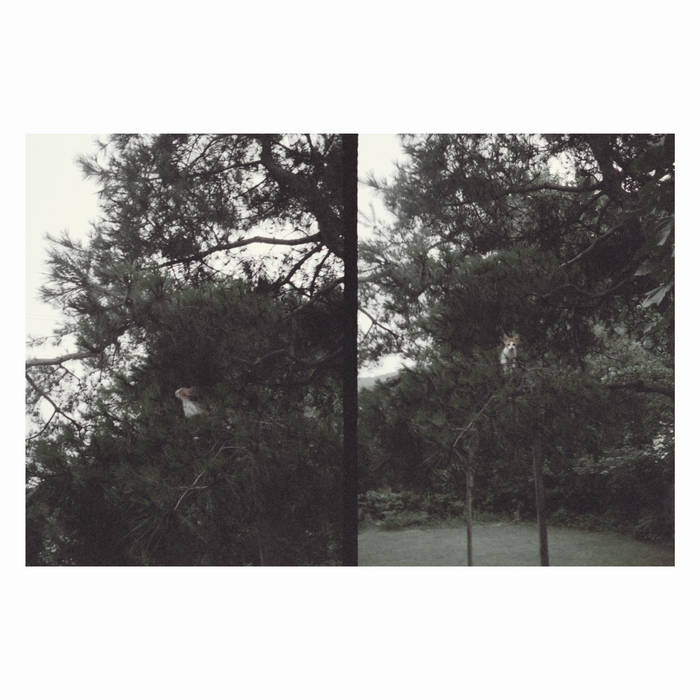
Meredith Hobbs Coons: I like thinking about the word "mundane." It implies that the things going on are maybe boring. It's just daily life stuff.
Okkyung Lee: Right. I guess when I say "mundane," it means something that you just do without thinking. You do your dishes because you just do it; something that you have to get through. I just thought about writing music that actually has some kind of a use, something that can be a part of you, something that's not just to set a certain mood, but something that you can have in the background; you can listen to it, or you don't have to listen to it. I just thought it'd be exciting to know that people actually can use these tunes without paying too much attention.
Meredith: And, things like doing the dishes, these are actually really intimate things for someone to be present for, so it's like the music that you've written is maybe intended to be a companion for people. It's music that's there for you.
Okkyung: Right, like in a private setting. You feel like you can just go and press play and then not have to think about it again.
Meredith: In a video interview that you gave, you were talking about how the music you were performing at that time was intended not to be passive. It was in conversation with architectural spaces.
Okkyung: That's something that I still think about. Because I've been doing something called ‘experimental music’ for 20-something years, I guess I'm just always looking for something to justify the title—the name ‘experimental.’ I feel like a lot of this time has been spent developing my own language on the instrument, which is something very specific. And also improvising in the space, bringing the audience into the piece, and then trying to make an inclusive performance. But then, to write music, and also how these tunes came about, the circumstances I was in. It was during the pandemic isolation. I was on my own, so I was looking at how to take this experimentation in a different way, because I had no choice. It wasn't like I was performing. But then I had this idea of wanting to write something that has a kind of use—I don't want to say purpose, because that seems like such a grand term.
I know some people might hate me for saying this, but I sometimes feel like there's just way too much music. Meaning, of course, there's so much music that you'll never get to hear. It's impossible to hear everything, but then even the music that you come into contact with, sometimes you just hear, maybe, five seconds of it, and then that's it. It gets tossed out for some reason. Or maybe you hear it once, and you might like it, but you never figure out what it is. So I feel like there are so many concerts, so much music getting produced—some of them don't really get to have their own real lives in a way.
Meredith: A saturation happens as the tools become available to everyone to make music, which is a beautiful thing, but also a challenging thing, because there's so much. It's hard to really spend that time with the different compositions that you might hear.
Okkyung: I wanted to write something that had some reason for existing, I guess.
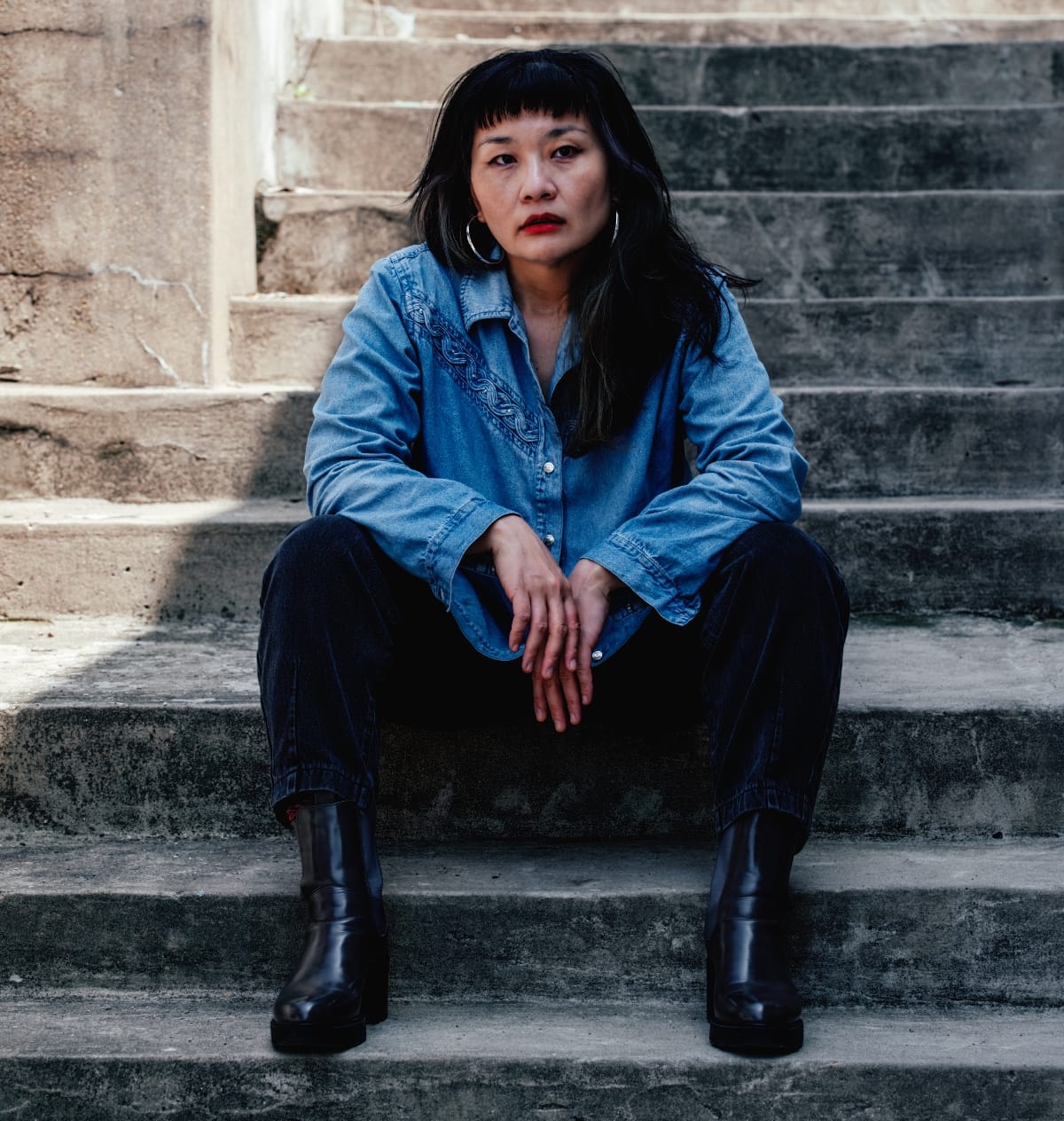
Meredith: So, you spent a lot of time with these compositions. I read that it took you four years of cycling back to them and finishing. How did that feel different for you, spending that time adding in those layers, or returning again and again to these pieces to refine them?
Okkyung: The tunes on the album Yeo-Neun started that way. Just Like Any Other Day was just me, writing on the computer, but I never thought that they would be complete material to be able to release. They started as a sketch, without any purpose, without any planning. I was just doing it because I was bored, because I had nothing else to do. So then I kept developing them little by little. I'd do something, and then I'd be like, "Oh, I like them, but they are not really good for anything. They're just for my own enjoyment."
But then maybe six months later, I'd play them back. I kept thinking they might be useful as a sketch for something else, but then each time I went back, I started feeling a little attached to not just the musical ideas and melodies, but also the sounds. They're very meaty, they're synthetic, sometimes very cheesy-sounding things. I was like, "I think that I have to keep these sounds. If real instruments play these lines, I don't think they'll be the same," meaning that I had to finish them and turn them into proper pieces. But even after making that decision, I just kept going back and forth, because, considering what type of music I had been doing, if I released this type of album, people would laugh at me. It's a weird step to take for somebody who plays ‘noisy cello,’ so I was reluctant to even share. But I still had this attachment that was growing inside. So I started to share a little bit with a couple of my friends. Also, I reached a point where I felt that unless I let these tunes out somehow—by releasing them and sending them off from my own world—I couldn't move on to another project. So, it became an emotional blockage that I had to get rid of.
Meredith: Were there any unspoken or sort of unorthodox collaborations as you were making this album?
Okkyung: Not really unorthodox. The only other person I asked to help was John Chantler, who re-recorded the sounds. Even though I said I was attached to these almost cheap-sounding, very particular sounds, I also thought it reminded me of listening to music when I was a teenager through a Walkman, so I wanted them to have that type of quality. I asked him to re-record these digital pieces through this cassette tape player I bought in Korea for 25 bucks. And then I went to Stockholm, where my friend John lives, and he has his home studio with this beautiful microphone. I asked him, "Can we try to record this sound through your fancy microphone, and then just add this extra layer?" So yeah, he did that. That's the only collaborative part on this album.
Meredith: Memory is also a theme in this, or something that you drew from.
Okkyung: Yeah. If you look at the titles, they're all from movies when I was growing up. For example, the second piece released is about Sherlock Holmes, "Let's Walk Down to the Swamp Together." I was obsessed with Sherlock Holmes, and when they translated it, they used this Korean word that could mean swamp. But the only swamp that I knew of was the one that the alligators live in in the South. And I kept thinking, "Why would you go down to the swamp to take a walk?" I was so confused as a kid. The Korean word for swamp became a very specific word, because it's almost like an imaginary landscape. "Good Morning, Harrison, It's Time to Go" is about Harrison Ford in Working Girl. "Rainy Night Ride with Roy" is Roy from Blade Runner, and it has a little bit of a Vangelis feel to it. Those references are there.
Meredith: And the song "Crows Over My Shoulder, Take Me?"
Okkyung: That's because crows are one of the themes that I kept bringing back into my titles, but also the mood of pieces. It's like a grayness, a gray sky, and also a sense of waiting for something to happen. And then crows become this figure to kind of take me somewhere. That's something that I kept going back to, I don't know why. On Ghil, there are a couple of titles related to crows. So it's connected to that, maybe not in terms of sounds, but in terms of sentiment.
Meredith: Crows are an animal with an exceptional memory, too.
Okkyung: Exactly, yeah. They never forget. They can even test you. I feel like there must be a way for us to communicate. I tried to make some eye contact with the crows in Berlin, but they never really looked at me. Maybe I should speak German to them.
Meredith: So, how did it feel to leave the cello behind for this album?
Okkyung: There was a time when the cello started to feel like, not necessarily a burden, but it started to become my musical identity. I was trying to find a way to leave it behind. Actually, I didn't make this album thinking that I wanted to do that. But another problem is that this is not an album that can be performed live. So if I want to turn this into a live situation, then I'll have to think about the role of the cello and if there is a space for the cello or not. But I still like playing the cello. I keep going back and forth, thinking maybe I'm done playing. Then I try again, and I still like doing it.
Meredith: One way to think about this is, you got a degree in film scoring, and you said the titles are all taken from films. It seems like you were perhaps returning to an earlier time as a composer.
Okkyung: Yeah. Two other albums have come out in the last five years that are in a similar vein. These are the things that I've been doing for many, many years. I had these different threads going on at the same time. I think there's some kind of basic instinct, like a musical instinct. Even when I'm doing something noisy and maybe demanding, the bottom line is that I am trying to create music.
Sometimes I think films are actually more influential to me than music ever has been. I left home when I was 12, and I was pretty much on my own since then, so I had lots of time to watch movies by myself when I was actually supposed to be practicing and studying. Memories of listening to [Korean] pop songs and then films, they're the base of everything I do. Now I'm just trying to find a way to bring them out in the music I'm making. I got old enough that I feel comfortable, and I just let them flow out.
Meredith: Would you be open to actually working in film or collaborating with a filmmaker to score a film in the future?
Okkyung: I've done a couple of short films. Earlier this year, I worked with Daniel Blumberg. He's the one who did the music for The Brutalist. He has a passion for improvised music, so he invited lots of improvisers to work on his scores. I noticed that he had a strong relationship with the director and writer from the very beginning. He knew what was really behind the whole movie. So, he had a firm relationship with the movie makers, but also a respect and an understanding of the music that I'm a part of. Working with him was refreshing in a way because there was so much openness, yet he was specific in what he wanted to do. So I thought, “Wow, if I can meet somebody who has a certain understanding of what I do, and then also gain a close understanding of the film, then the process must be really rewarding.” So, yeah, if that happens, that would be great.
Meredith: Do you have anything coming up that you're really excited about?
Okkyung: I have another album coming out after this, which is on the opposite end of the spectrum. I was commissioned to write a piece for a six-piece ensemble in London. We did three performances last year, and I'm turning that live recording, and also pre-existing recorded sounds of the players, into an album of the piece. That sounds really complicated, but I am trying to make an album that's not a live documentation. It's kind of an imaginary, put-together album of the piece. It's coming out soon. I'm all excited.
Meredith: It seems like you keep very busy, between the recordings that you release and the live performances that you participate in.
Okkyung: Yeah. But, you know how it is for freelancers, it's like, when it's busy, it's really busy. When it's not busy, you just, like, spend days watching cat videos on YouTube. That's what I do. I think the cats will save us from this misery that we are in. (laughter)
Meredith: Right. We need them.
Okkyung: Otherwise, you go crazy.
Meredith: Would you like to talk about your bimonthly show on NTS Radio?
Okkyung: Yeah. I've been doing it for more than two years already. At first, my response to them was, "Why me?" because I'm not the DJ type, but they said, "You just have to make a playlist." I thought this could be a good way to actually force myself to listen to different stuff. I always try to have a theme for each playlist, even though it's not always clear. I also felt that it could be a good opportunity to play some traditional Korean music. These days, everybody knows K-pop. But what I grew up with is a different type of Korean pop music. I felt that NTS would be a great place to play this traditional music, which most of these listeners wouldn't have access to.
My show is early in the morning. It’s like, all of a sudden, you hear this person with a really deep, throaty voice screaming. (laughter) It's this really heavy song about purifying the soul on the way to heaven or something, I imagined sneaking this really heavy Korean music into the mix. Also, in Korea, the government formed a blacklist of people who were artists or in charge of cultural events. They were trying to censor people out.
Meredith: Wow.
Okkyung: Yeah. In the late '60s, when we had a military dictator, Korean pop culture, music and film, and writing were about to have some kind of Renaissance. It felt like something interesting was happening, but then this dictator came into power and started sending everybody to jail, often under very minor charges or sometimes even fake ones. Men couldn't grow their hair long, for example. There would be police going in the streets and cutting people's hair—that sort of cultural oppression. So, I decided to create a playlist of songs that were banned by that government as my own, timid protest against this blacklist, like, "These are the songs that were banned, but now listen to them." They're classics; people still listen to them.
Every two months, I'm like, "Okay, so what interesting theme can I come up with?" I just keep making playlists. I have another one that I have to prepare soon. So . . . what am I gonna do this time? (laughter)
Meredith: Are these archived for people to go back and listen if they're interested?
Okkyung: Yeah, it's available online. Maybe I should do a cat-themed playlist.
Meredith: That would be amazing. You're really speaking my language today! This particular album, you didn't have a lot to do with collaborators, aside from your friend in Stockholm. But are there any other collaborators that you'd like to highlight who've been really inspiring you or who have mentored you throughout your long career?
Okkyung: There was a time that I was collaborating quite a bit, and then in the last few years, it's less than it used to be. There's Mark Fell. We met nine years ago, and we've been working mostly as a duo. Playing with Mark, each time, is a fun and difficult challenge. But I like challenges. Sometimes I feel like, because I'm so physically involved with my instrument, and he's just changing the numbers on the computer, "Oh my God. Does he know that I'm about to collapse and die?" But it's fun to have that limit and see how far I can go.
It's similar with Rashad Becker. We've been playing as a duo quite a bit, and we recorded together. I like collaborating with people when I don't really understand how they are creating or what they're doing. With Mark, I know it's Max/MSP in theory, but that's all I know. And with Rashad, he builds his own synthesizer. That I know. But I don't know what is what. He creates something that I just cannot even imagine, but it sounds great. I hear their sounds and my body goes, "Yes." I just want to be a part of it.
Christian Marclay is somebody I met a long time ago. First of all, he's such a solid, great person. And also, even though now he's more known as a visual artist, he used to perform as a turntable player. I always sense this music in his films, especially when it comes down to editing. That's when I really see his musicality in the video, and I find it very touching. To see somebody who's really able to go to that fine line between the music and the visual images, somebody who's always reliable and very generous—it's just nice to be around.
Marina Rosenfeld is somebody with a very personal voice. There's a certain touch that she brings into her work that is so uniquely hers. She's also a mom. She has twins, grown-up kids, but has continued to grow as a composer and as an artist for the last 20-something years. I don't know how she manages. Sometimes I'm in awe, because I've seen enough cases where female artists become mothers, and it stops them from fully devoting their lives to their craft.
And there's this pianist, Lisa Ullén. She's in Sweden, and another person who kept slowly developing her own voice. She's even a grandma. She wasn't trying to be famous. She wasn't trying to play as many gigs as possible, but she was kind of like, pick-and-choose. Now, she has reached the point where she really sounds like nobody else but her. Seeing people like them is inspiring. You realize that this is not just about one project, but rather a long-term goal that you want to keep going. You do it because it fulfills your curiosity, not because it will bring you something. I hope that I'll be like them. I'd rather go slow, one step at a time, and keep doing what I want to do, which is luxury at this point.
Check out more like this:
 The TonearmMeredith Hobbs Coons
The TonearmMeredith Hobbs Coons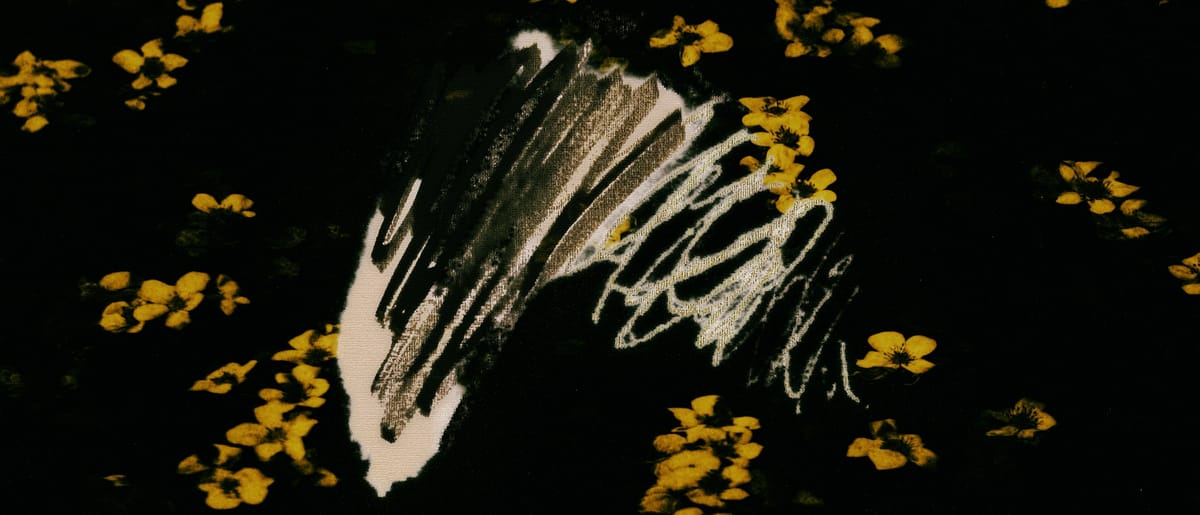
 The TonearmLawrence Peryer
The TonearmLawrence Peryer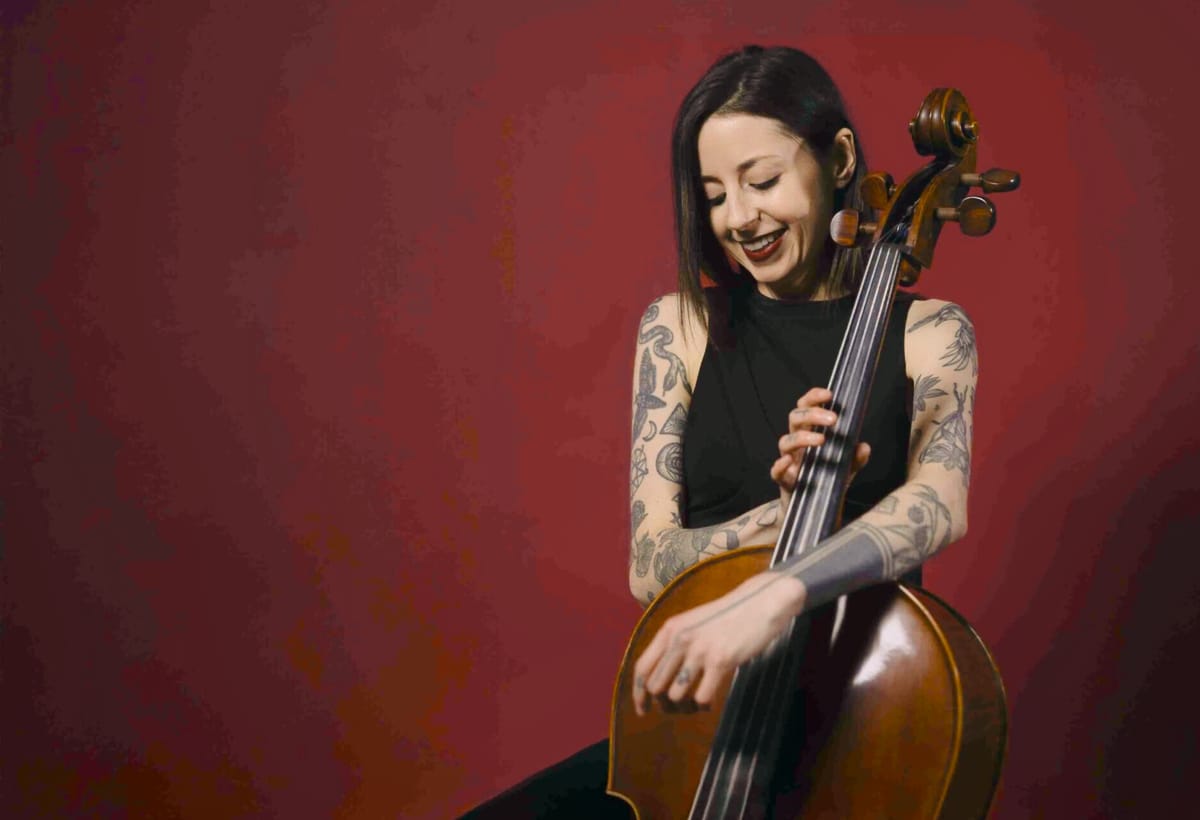


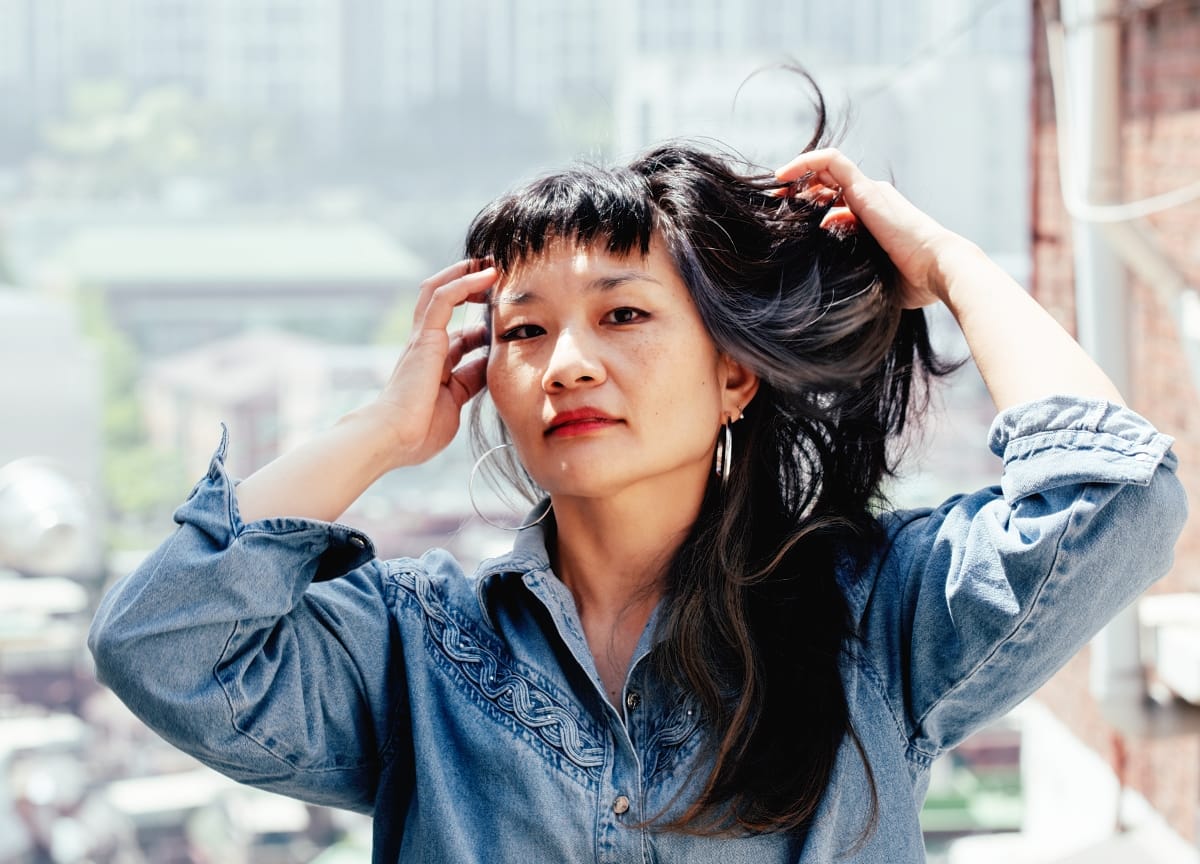


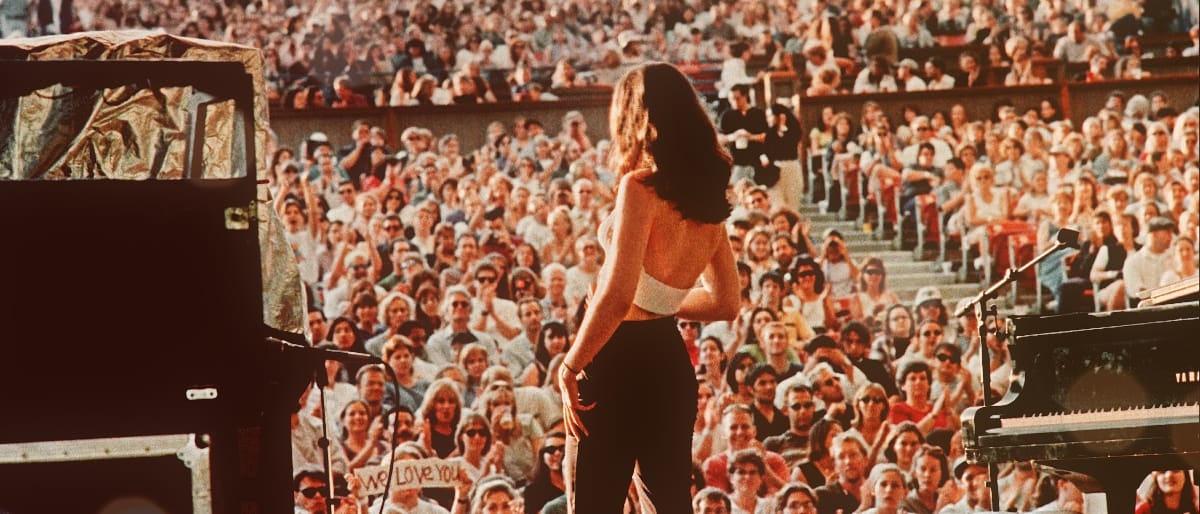
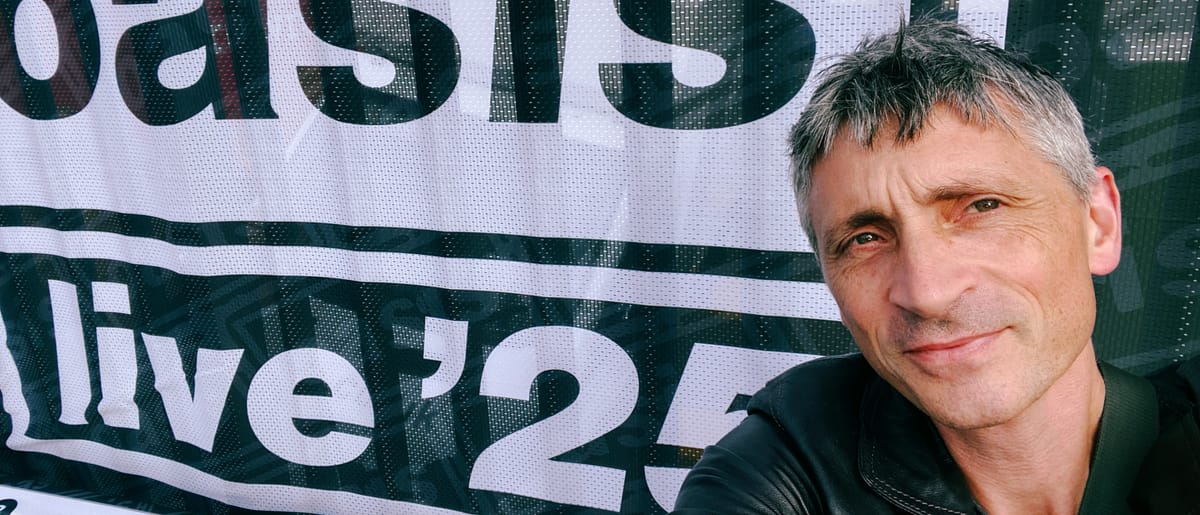
Comments